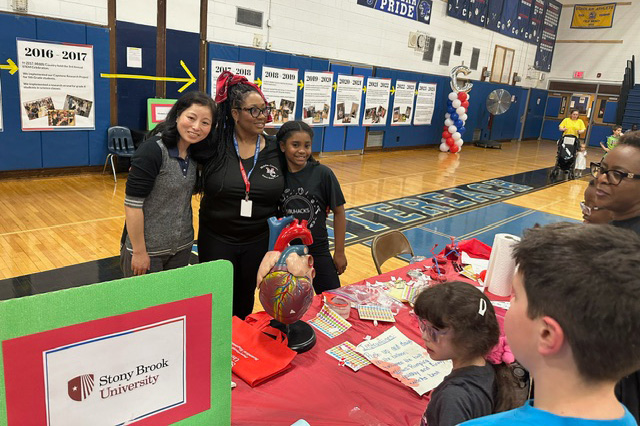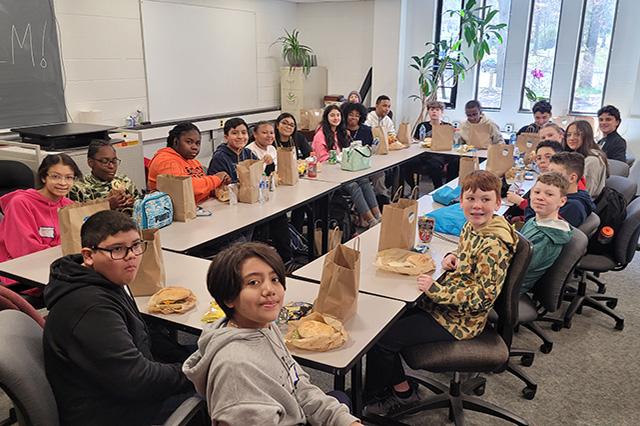Outreach Programs
The College of Engineering and Applied Sciences has an active outreach program under the leadership of our Associate Dean for Community Engagement and Outreach, Professor Wei Yin. It is our goal to help encourage and broaden participation in STEM education and careers. To achieve this end, we began the Gateway to Engineering Outreach Program, and our departments actively participate in the Stem Smart Outreach Program.
In Fall 2023, the College of Engineering and Applied Sciences (CEAS) launched the Gateway to Engineering Outreach Program. With collaborative efforts from Professor Wei Yin, Associate Dean for Community Engagement and Outreach, the CEAS undergraduate office, and our alumni, the Gateway Program engages with local K-12 schools to discuss engineering studies and highlight opportunities within the field. The program's mission is to inspire youth to explore careers in engineering and applied sciences at Stony Brook University. It includes participation from our current students and CEAS alumni during Professor Yin's visits to local schools.
If you would like to schedule a visit with Professor Yin and her Gateway to Engineering Outreach Program, please contact her at: wei.yin@stonybrook.edu.
STEM Smart, housed in the Department of Technology and Society, is an umbrella organization of STEM Education Programs designed to enhance the participation of groups that are underrepresented in STEM education and careers. Supporters of these programs include SBU, the NYSE, the National Science Foundation, businesses, private foundations, and individuals. It includes the CSTEP and STEP programs.


